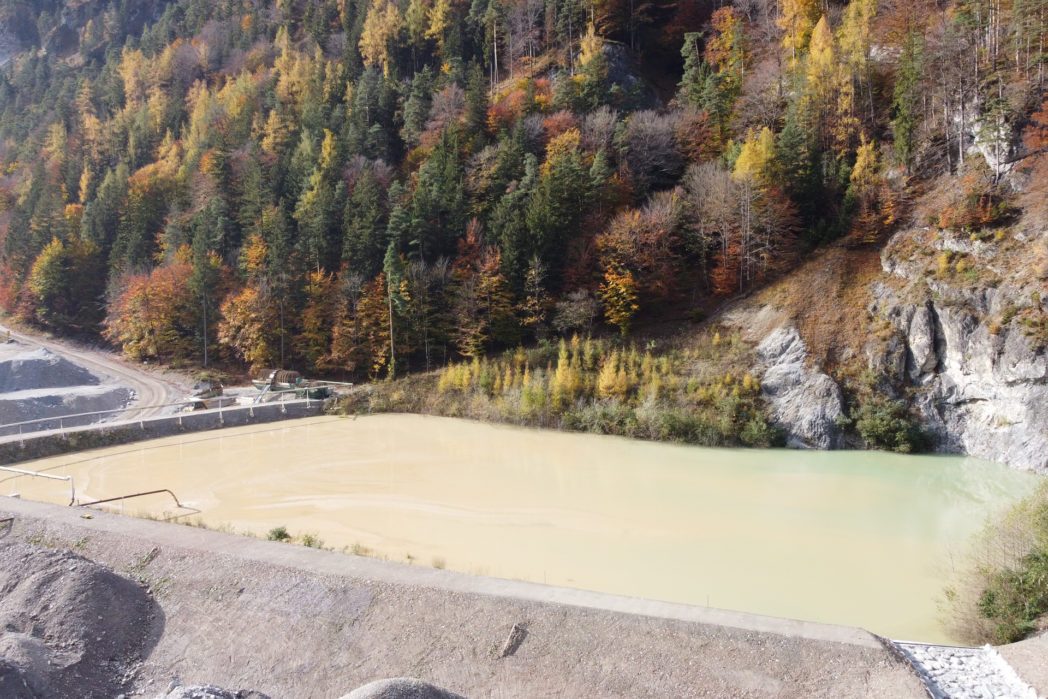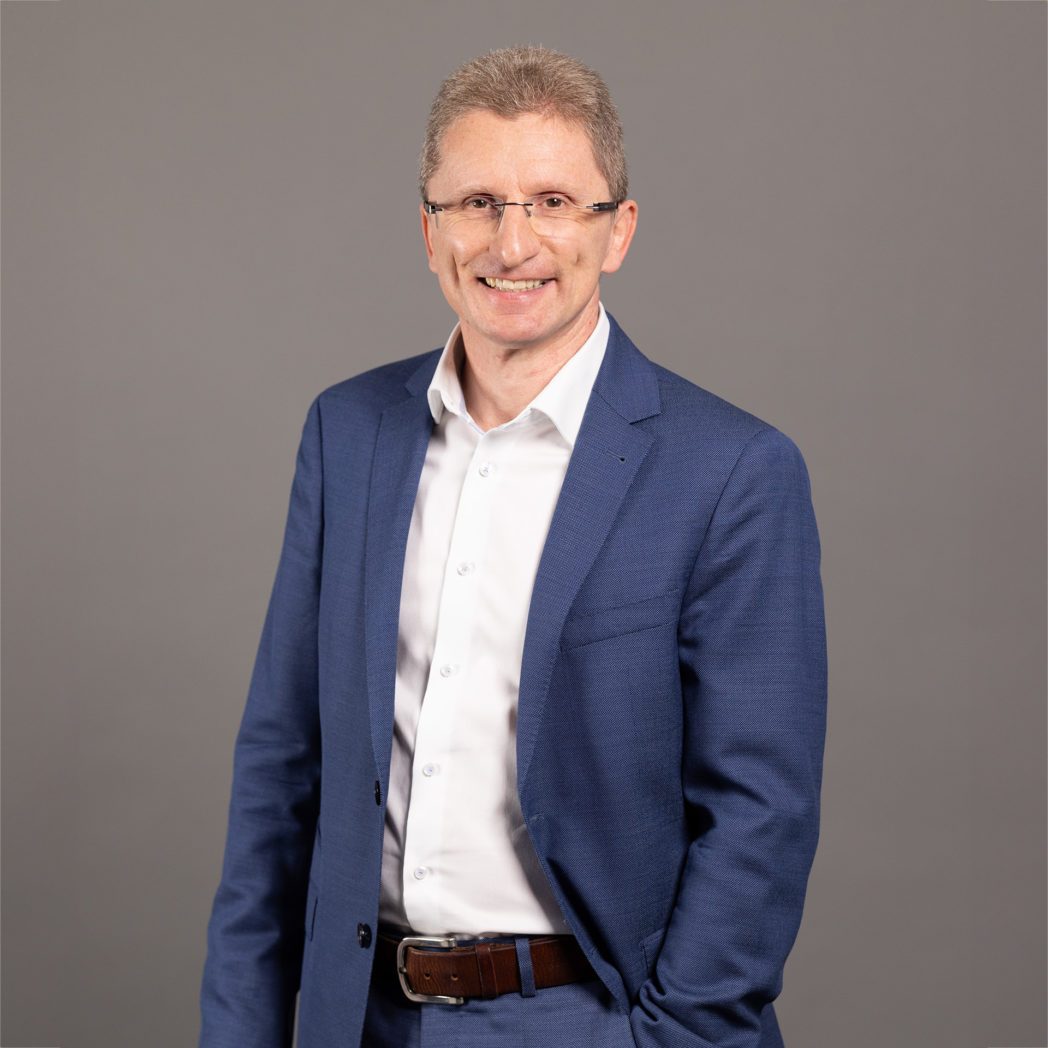
The Pongau-based company specialises in the extraction of raw materials such as concrete, sand, gravel and stone. Over the last 15 years, the company has increasingly focussed on recycling and the recovery of raw materials. “We mine raw materials and then take these building materials back again. They are recycled and this creates new building materials,” says Managing Director Christian Ehrensberger about his company.
Resource-conserving value chain
Gravel is the raw material for ready-mixed concrete and asphalt mixes. The raw gravel has to be washed and sorted. This removes the finest grains, including fine sand and fine soil (silt). However, these materials are valuable and can be used in many ways, says Christian Ehrensberger: “They can be used as fertiliser in combination with other minerals, for example, or used to produce rock flour for potting soils. It is also possible to add sand and silt components for special concretes or cement.”
Sludge ponds are currently being built to deposit the unwanted fine material. “However, we no longer have these huge areas available to create one sludge pond after another. That’s why it makes sense to utilise the raw material in a different way,” says Ehrensberger. In the past, the fine raw material was dumped. “With our project, we want to create a resource-conserving value chain in which recycling takes place in the first step – as early as the extraction stage. This allows us to utilise the entire material,” continues the building materials professional.
Comprehensive support
The project for the mechanical recovery of ultra-fine sludge and gravel was funded by an FFG small project. Christian Ehrensberger was supported by our Service Centre Innovation team in structuring the project, drawing up the funding strategy and submitting the funding application. Werner Balika also liaised with the University and Salzburg University of Applied Sciences. “Innovation Salzburg gives companies low-threshold access to the universities and the right contact persons. That’s something I’ve never experienced before and it used to be difficult to establish contact,” reports Ehrensberger. The company is working on the project with geologists from the University of Salzburg. And a good relationship has also been established with the Salzburg University of Applied Sciences. “When developing any innovation, I think it’s important that companies and universities pull together. And this is facilitated by Innovation Salzburg.”
About Christian Ehrensberger GmbH
- Head office is in Tenneck near Werfen im Pongau
- 35 employees
- SME
- Quarrying, recycling and recovery of raw materials such as concrete, sand, gravel and stone
- ehrensberger-steine.at
This might also interest you
6. March 2025
salz21: Necessary Steps for the Future
On March 5, 2025, salz21 | Home of Innovation once again provided a platform for future topics, innovations, and interdisciplinary exchange. More than 1,000 visitors took the opportunity to learn about current developments and discuss perspectives for tomorrow. Three topics were particularly dominant: climate protection, artificial intelligence, and a strong Europe.
25. September 2024
Green Deal: How Sustainable Business Development Can Look
The EU aims to create political and legal frameworks through the Green Deal to transform both the economy and society in a sustainable way. The Pinzgau-based company Design Composite demonstrates how this can be implemented.
15. August 2024
Sunbeam Yachts: Where Craftsmanship Meets Digitalization
Sunbeam Yachts has been building exclusive sailing yachts at Mattsee for generations. The production is done by hand, with some processes now digitally supported.
12. August 2024
SBS: One Software for Many Self-Service Devices
As a leading provider of banking software in Salzburg, SBS is now exploring new markets. The company remains true to its core segment by offering manufacturer-neutral software for self-service devices in additional sectors.
